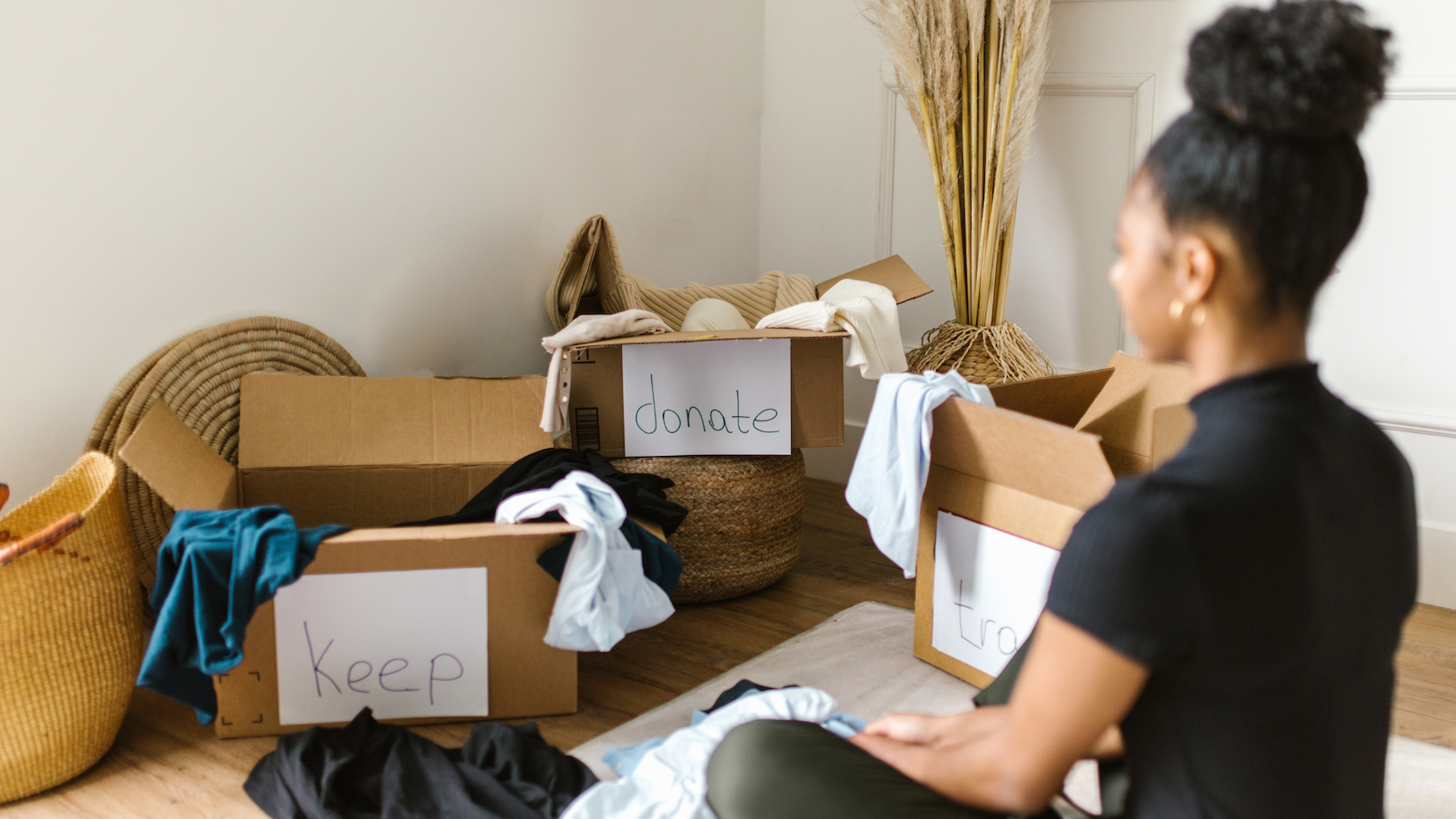“Cobwebbing” Is A Must After a Breakup
Raise your hand if you still have a keepsake from your last relationship. (Go ahead—I know you do. I did too.)
Would it surprise you to know that about 66% of people hold onto a souvenir from a past relationship? So if you do, you’re in good company.
Maybe it’s jewelry, old photos, letters, or forgotten texts. Maybe you still have reminders of your ex on social media. Some of these items are expensive, and part of you thinks, Why give them up? Others are sentimental, and you may wonder, Was my ex really that bad that I have to throw away all the nice things? Or maybe it’s as simple as, I earned this—I’m not giving it up.
I’ve told myself all of these things in my most painful moments. So, I get it.
But here’s what I’ve learned: these keepsakes are emotionally heavy. They take up mental and even physical space, keeping you from moving forward.
That’s why one of the first assignments I give my clients is a decluttering exercise, not because they’re messy, or as busywork, but because physical and emotional clutter often contribute to mental overwhelm and stress, which can impair your thinking, disrupt sleep, and trigger the body’s stress response, making it harder to relax and heal.
The heart cannot heal in clutter. When you’re moving forward, these types of reminders of past relationships create emotional baggage that prevents you from building something healthier and more fulfilling.
The ghosts of exes past will continue to appear as long as you hold on to their trinkets. Because if it didn’t matter, you wouldn’t still be holding on.
And yes, I know, it’s easier said than done. These items can offer comfort as you grieve or serve as a reminder of what you endured. But whatever your reason, it may also be holding you back.
Why We Hold On
Emotional Connection: The items carry meaning and memories from significant times in our lives.
Personal History: They remind us of who we were before and during that relationship.
Fear of Forgetting: Sometimes we keep them, so we won’t lose the past, even if it was painful.
All of this makes sense. But here’s the thing: you can’t pour into a full cup. A physical and emotional cleanse is needed.
Enter Cobwebbing
Cobwebbing is the practice of removing items tied to your ex. This might mean discarding photos, gifts, or clothing. It could even mean deleting old texts, emails, or their contact information.
Yes, it can feel scary to let go. But research shows that decluttering can actually reduce anxiety and create space for healthier relationships. In other words, the very things we crave after heartbreak.
The Cobwebbing Release Plan
1. Choose with Intention
Gather mementos in one place. Decide which to let go of now, and which (if any) you may need more time with.
2. Create a Clearing Ritual (Norton & Gino, 2014)
Write a short note of thanks or closure to the person or relationship. Say it aloud or silently. Then decide on a symbolic act: tearing, shredding, recycling, donating, selling, or placing items in a box to remove from your space.
3. Use Acceptance and Commitment Therapy or ACT-Inspired Tools (Twohig et al., 2020)
Defusion: Notice sticky thoughts ("I can’t throw this away") and reframe: "I’m just having the thought that I can’t throw this away. That doesn’t make it true."
Self-as-Context: Pause, breathe, and remind yourself: "I am more than my memories. I can carry love forward without objects."
Planned Distraction: Reward yourself after letting go of an item—take a walk, call a supportive friend, or journal. Anchor the choice with something positive.
4. Mark Completion
Once you’ve released the items, end with a closing action: light a candle, take a deep breath, or play a song that represents new beginnings.
Letting go of belongings tied to a past relationship can feel overwhelming. In many ways, it represents finality, and that can feel paralyzing. But cobwebbing isn’t about erasing the past—it’s about creating space for what’s next.
Your memories will remain. If they’re painful, this practice may help soften them. If they’re positive, they’ll stay with you in their proper place.
Cobwebbing is about welcoming peace, confidence, and a new chapter. It’s saying yes to yourself—and maybe, when you’re ready, yes to love again.
You’ve got this!
References:
Norton, M. I., & Gino, F. (2014). Rituals alleviate grieving for loved ones, lovers, and lotteries. Journal of Experimental Psychology: General, 143(1), 266–272. https://doi.org/10.1037/a0031772
Ong, C. W., Terry, C. L., & Twohig, M. P. (2020). Comparing the efficacy of defusion, self-as-context, and distraction strategies for getting rid of possessions. Journal of Cognitive Psychotherapy, 34(3), 242–260. https://doi.org/10.1891/JCPSY-D-20-00010
(For readers who want to explore more, these strategies are drawn from Acceptance and Commitment Therapy, or ACT, a research-backed therapeutic approach.)

